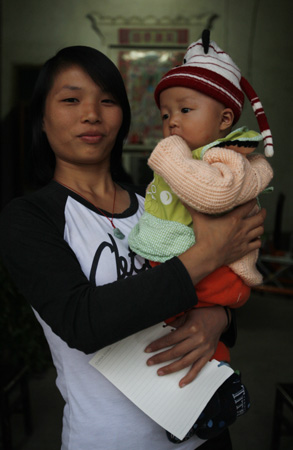Focus
'Strangers' return to a frosty village welcome
By Wang Yan (China Daily)
Updated: 2010-11-16 07:55
 |
Large Medium Small |
New sensibilities
In July 2009, migrant population management officials at the National Population and Family Planning Commission surveyed 47,461 workers with urban and rural hukou. It showed that 60 percent of the rural migrants were concentrated in low-pay, high-risk industries like construction, manufacturing and catering, while for urban residents the percentage was 53.
Roughly 64 percent of respondents with rural hukou, however, said they will spend "the later part of life" in their native villages.
"Migrant workers devote the best times (of their lives) to the development of cities but they're excluded from enjoying its welfare," said Meng. "They're the cost of the urbanization process.
"On the other hand," she added, "their returning home could boost the cultural development and civilization process of the rural areas."
Women who return from cities usually have a greater sense of self-awareness and care more about their children's education, compared with those who never left home, said Meng.
Yang agreed and said she hopes, like all parents, that her twins enjoy a better life than she has.
"I don't want them to stay here," she said, referring to the village. "I hope they'll do well in school. I regret not taking school seriously myself."
"I don't want my son to be like me, working for others," said Zhou, echoing her neighbor's sentiments. Looking at her son, Wang Zi, which means "prince", she added: "I want him to spend some years at school and (get out of the village) in the future.
"Life at home in the village is pretty boring," she said.

Zhou Qiuhua, 24, holding her son, plans to go back to work in cities when the boy is 1 year old.